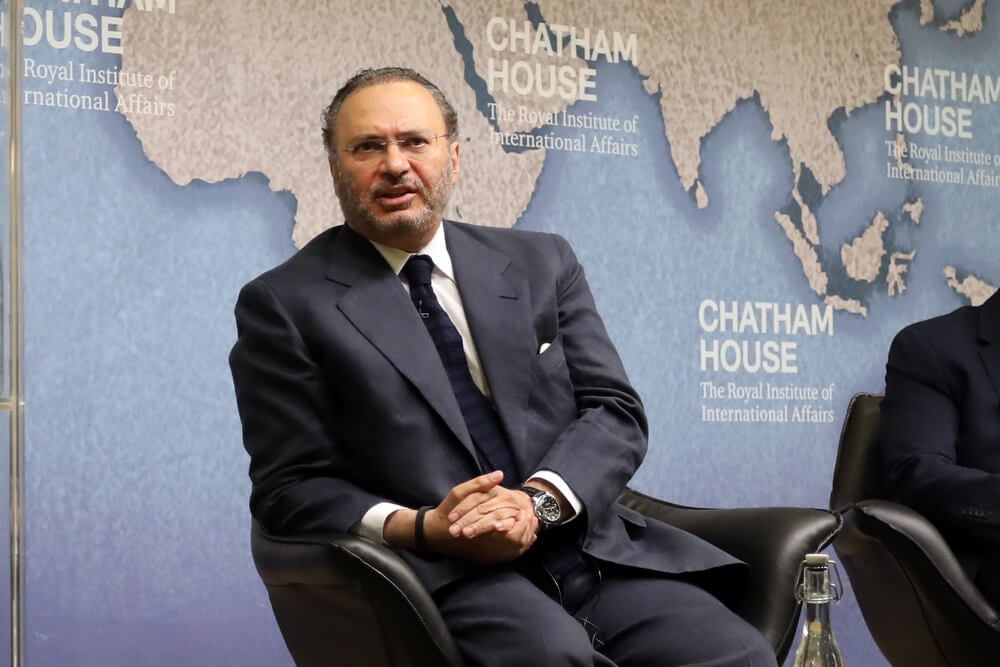Donald Trump’s election victory has deepened fear among the Palestinians that their aspirations for meaningful statehood will likely be sacrificed as the president-elect has started to appoint a clutch of pro-Israel and anti-Iran hawks who seek a wider reconfiguring of the Middle East.
But to clutch at straws as some liberals have started to do, Trump’s aversion to pay for wars along with his admiration for Gulf strongmen may mean the self-styled dealmaker can get Israel and Iran to avert future conflict as well as end the Gaza war.
However, it is practically certain if there were an alignment of interests between the US, Israel, Saudi Arabia and even Iran, the Palestinians are likely to lose out.
Under the last Trump presidency, the US flouted international consensus by moving its embassy from Tel Aviv to Jerusalem, recognised Israel’s sovereignty over the holy city and the Israeli annexation of occupied Syrian Golan Heights, and issued a peace plan under which Israel could annex 30% or more of the West Bank.
On Iran, the first Trump administration left the 2015 multilateral Iran nuclear agreement known as the Joint Comprehensive Plan of Action (JCPOA) and the Iranian nuclear programme has since expanded.
The Gaza war grinds on with its accompanying humanitarian toll while many analysts believe Iran may be preparing for another attack on Israel to retaliate for Israel’s strikes on Iranian air defence and missile sites on 26 October.
“Bibi could have stayed quiet”
Much has changed since Trump left office in January 2021 and how the re-elected mercurial leader will respond will shape the Middle East no less than the US itself.
Trump, who does not let grudges go lightly, backs Israel but he has a complicated relationship with Benjamin Netanyahu, Israeli prime minister. “Bibi could have stayed quiet,” grumbled Trump after Netanyahu was the first foreign leader to congratulate Joe Biden after his 2020 presidential win.
This time around, not only was Netanyahu among the first to congratulate Trump but the day after the US elections, large billboards appeared in Tel Aviv saying “Congratulations! Trump, make Israel great!”
Trump has been clear he wants Israel to end the Gaza war by the time he returns to office in January
Trump has been clear he wants Israel to end the Gaza war by the time he returns to office in January although it is believed the US would likely accept favourable terms for Israel, such as its military control over the Strip.
“Trump’s not going to give him a blank check,” a Washington lobbyist told Politico. “If that’s what Bibi expects, I think he’s going to be disappointed and he’s going to have to recalibrate his approach because Trump wants to end the fighting in the Middle East almost as much as he does in Ukraine.”
JD Vance, the vice-president-elect, is also highly sceptical about further US entanglement in Middle Eastern wars. “Our interest very much is in not going to war with Iran. It would be a huge distraction of resources,” he said in an interview last month. “It would be massively expensive to our country.” He also suggested that Israel and Arab countries in the Gulf should “provide the counterbalance to Iran.”
Comprehensive approach instead of reactive policy
Saudi Arabia hosted senior Iranian officials at a conference in Jeddah this week, part of their commitment to dial down tensions since a China-brokered agreement in March 2023 re-established diplomatic relations between Saudi Arabia and Iran after a seven-year freeze.
Saudi Arabia’s Crown Prince Mohammed bin Salman accused Israel of committing genocide in Gaza and condemned Israel’s strikes on Iran.
 The incoming Trump administration must pursue a “comprehensive” approach instead of “reactive and piecemeal” policies - Anwar Gargash
The incoming Trump administration must pursue a “comprehensive” approach instead of “reactive and piecemeal” policies - Anwar Gargash
In another development, Anwar Gargash, the UAE’s presidential adviser, told a conference in Abu Dhabi that the incoming Trump administration must pursue a “comprehensive” approach instead of “reactive and piecemeal” policies.
Such a comprehensive approach could be the revival of Trump’s earlier Israeli-Palestinian peace plan that contains all of the conditions Riyadh is seeking in order to normalise with Israel, according to Brian Hook, who previously served as Trump’’s special envoy to Iran.
Hook told CNN that “much of that work is still relevant today”. But the plan was previously rejected by Netanyahu’s settler allies because of its inclusion of a Palestinian state while the Palestinian Authority rejected it because it only granted them a semi-contiguous state with Israel allowed to annex large swathes of the West Bank.
Tough variables
If the new Trump administration pushes the plan again, it will face another complicating factor, namely Iran’s nuclear ambitions, but tentative hopes for are being raised around this issue. The next Trump administration can expect increased support from European leaders over tough sanctions on Tehran, says the Soufan Center.
“Many experts assess that broad cooperation with U.S. sanctions on Iran could propel Tehran to undertake negotiations with Trump officials in search of a broad agreement on major outstanding issues – a deal the president-elect has said he would strongly entertain,” it said.
The Palestinians will remain at the mercy of the complicated chess board moves of outsiders
Whether this could unlock a path to acceptance of the US Israeli-Palestinian peace plan and accompanying Saudi normalisation with Israel is of course subject to many tough variables.
The Palestinians themselves have watched the Biden administration’s inability to reign in Israel’s military actions in Gaza and many of them wonder how much worse could Trump prove to be. They will remain at the mercy of the complicated chess board moves of outsiders.